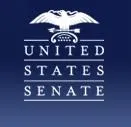Hill subcommittee hears skepticism of Verizon deal

It was a confident presentation by Verizon General Counsel Randal Milch and Comcast Executive Vice President David Cohen. But, members of the Senate Judiciary Subcommittee On Antitrust, Competition Policy And Consumer Rights voiced skepticism of their proposed Verizon Wireless joint marketing deal with cable giant Comcast, Time Warner, and others.
Prior to the hearing, CWA and IBEW, generated thousands of letters and more than 92,000 petition signatures, all opposing the Verizon-cable deal.
Subcommittee chair Herb Kohl (D-WI) opened the hearings by pointing out that Verizon Wireless, the nation's largest cell phone company, had signed agreements with Comcast, as well as Time Warner Cable, Cox, and Bright House, "to cross-market each others' services and form a joint technology venture." And that these industry-dominant companies would offer consumers a quad-play bundle - video, internet, landline phone, and, now, wireless service.
The deal, said Kohl, threatens the competition promised by the Telecommunications Act of 1996 which promoted competition between cable and phone companies. "Many," said Kohl, "now wonder if these agreements that we are examining today will roll back these advances in competition and even amount to a truce between one of the two largest phone companies and over 70% of the cable TV industry." Kohl wondered if "the joint marketing agreements are a truce."
Senator Michael Lee (R-UT) had questions of his own. The deal, he noted, interferes with Verizon's incentives to build out FiOS. As a result, he too wondered if, "the new agreement signals an end to competition."
Panelist, Columbia University law professor Timothy Wu, noted that "Verizon has been the clearest and strongest competition to the cable industry." Both Milch and Cohen strongly defended their plan to cross market their services, saying it benefited consumers. But Wu said that "it is not clear that consumers are served by quad-play." Instead, "Consumers are served by innovation, not bundling."
Maybe the strongest criticism came from panelist Joel Kelsey of FreePress. He noted that the 1996 Telecommunications Act prohibits cable and telecom companies from joining forces. But this deal crosses that line, allowing Verizon Wireless to sign up customers for its competitor, the local cable company.
The deal, Kelsey said, is good for investors in Verizon and Comcast. "This is a signal to Wall Street that there will be no competition."
Other Senators at the hearing joined the chorus of criticism. Senator Al Franken (D-MN) voiced the fear that cable prices will skyrocket as a result of the anti-competitive deal, and criticized Verizon for abandoning its copper network and DSL service, leaving many customers with poor service and no broadband choice. Senator Richard Blumenthal (D-CT) joined Chairman Kohl and others on the panel, calling for a rigorous review by the U.S. Department of Justice and FCC. As Chairman Kohl noted, "the stakes are high for consumers."
"The Verizon/Cable Deals: Harmless Collaboration or a Threat to Competition and Consumers?" (Senate Judiciary Committee, Mar. 21, 2012)
Verizon online peititon (CWA, Mar. 2012)
Statement of U.S. Senator Herb Kohl - The Verizon/Cable Deals: Harmless Collaboration or a Threat to Competition and Consumers? (news release, Senator Herb Kohl, Mar. 21, 2012)
FreePress (website)
CWA members oppose AT&T’s attempts to stop serving rural and low-income communities in California
CWA urges FCC to deny industry attempts to loosen pole attachment standards
CWA District 6 reaches agreement with AT&T Mobility



